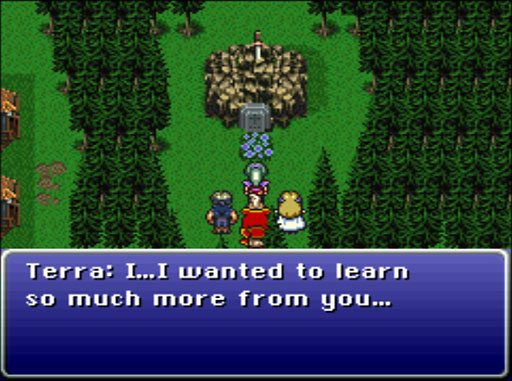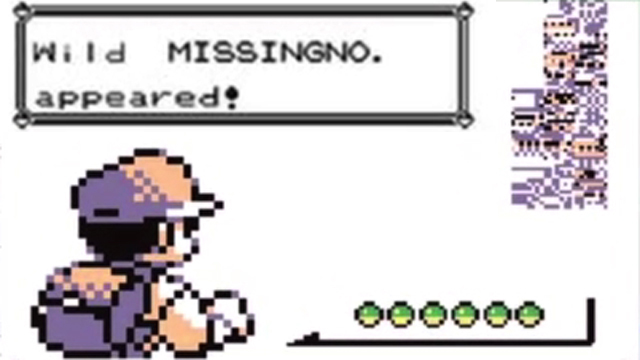Last updated on May 13, 2014
One of the things that I think most kids talk about when it comes to video games isn’t what the game actually presents. Rather, their inability to distinguish between imagination and reality turns said video games into something wonderful and exciting. You know what I mean if you grew up with them – who hadn’t heard the constant debates between one console or another? Perhaps you participated in such arguments with equal vigor!
The one things that sticks out to me now, though, came from the constant rumor-mongering regarding so-called “secrets”. Although we liked games, we held an almost religious devotion to discovering the hidden truths behind it. What about Super Mario Bros. and its Minus World? Do you know the guy who got there, and how did he do it? Do you know how to resurrect General Leo in Final Fantasy VI (sorry for the spoilers!)? Heck, fans even made a patch so Leo joins the party! How do I get Mew or MissingNo. in Pokemon Red and Blue?
All of these secrets/glitches/whatever proved a common ground for many friendships. Sometimes, the methods and means required to get them clearly sounded like what we refer to in the post-Internet age as “trolling”. I mean, who thinks using 60 Green Cherries in front of Leo’s grave will resurrect him, or moving the truck near the S.S. Anne would somehow reveal a Pokeball containing 151? And yet, given that we had nearly unlimited free time and weren’t going to buy a new game anytime soon, we eeked every little bit of fun out of the game that would could.
Most of these ideas would prove a dead end, while others required a wink and a nudge from everyone’s favorite video games magazines. Nintendo Power would never fail you on that point, but Electronic Gaming monthly would, quite literally, post the absolute worst “cheats” during their April issue. If anybody remembers spending hours trying to meet or play against Sheng Long, think again! At least Reptile in Mortal Kombat actually existed, but EGM sent many a young man/woman on a wild goose chase for a whole bunch of nothing.

Still, in no way do any of us hold regrest that we focused so fervently on what amounted to rumors, gossip, and false hopes. Even if it didn’t exist, the mere thought of speculations, of something just beyond what we could know, tantalized our young minds into more stupid video games explorations. I kept doing it right up until the advent of the Internet, and even then most websites contained notoriously inaccurate information about these myriad “secrets” (hence, the S.S. Anne trick didn’t really exist, haha). I loved living in that state, and I sorta do the same thing now; unfortunately, our following generations could not possibly obtain the same whimsical ignorance.
Nowadays, you’ll find incredibly accurate information about everything. You literally need to shut your life off from social media and the Internet to fully enjoy anything without spoilers. The moment something emerges into the public consciousness is the moment when you must join the conversation, or else you’re behind the curve. The new becomes old rather quickly, and we do not get the time to dwell on experiences as we should. That’s especially true in video games, where the accelerated technology curve all but makes one game obsolete and irrelevant almost immediately. The “classics” remain only as part of some “best of” list, and only the most dedicated explore the full depths of a game system anymore. Truly, we live in a different time.
Many people might use 1 Corinthians 13:11 to say that, perhaps, we all did need to grow up a little bit:
When I was a child, I used to speak like a child, think like a child, reason like a child; when I became a man, I did away with childish things.
To this I say they’re missing the context. Paul talks specifically about the misuse of spiritual gifts and our current lack of understanding regarding Jesus. We know in part, but we do not fully know. While we now see through a glass darkly, we will eventually be able to put away the childish thoughts and ideas we really had of God. When the perfect comes, the imperfect will pass – and, of course, that includes this little theology blog here!
The problem is, relatively speaking, we are still children. We don’t know it all, although we certainly think we got it together. Truth is, none of us can ever be any more certain than anyone else except for the love and salvation of Jesus Christ. That’s why they call it faith. And yet, we do need to keep a sharp, childlike eye on our own sense of wonder and curiosity. We must want to learn new things, meet new people, and be open to new experiences. Otherwise, we will lose our sense of wonder, and that’s a very dark place to live. C. S. Lewis calls it “arrested development” to obsess over “growing up”:
Critics who treat adult as a term of approval, instead of as a merely descriptive term, cannot be adult themselves. To be concerned about being grown up, to admire the grown up because it is grown up, to blush at the suspicion of being childish; these things are the marks of childhood and adolescence. And in childhood and adolescence they are, in moderation, healthy symptoms. Young things ought to want to grow. But to carry on into middle life or even into early manhood this concern about being adult is a mark of really arrested development. When I was ten, I read fairy tales in secret and would have been ashamed if I had been found doing so. Now that I am fifty I read them openly. When I became a man I put away childish things, including the fear of childishness and the desire to be very grown up.
-“On Three Ways of Writing for Children” (1952)
I suppose you can see why I’ve always had an affinity for Lewis, Chesterton, and their ilk: they reject a strict label between what constitutes “child” and “adult” activities. To reject something as “childish” merely says something about you, not about the thing in question. To call something “adult” (excepting pornography, I suppose) also says something about your personal preferences. This is why I refuse to categorize video games in some cultured ghetto merely because they’re fun games. Who doesn’t play games? Adults who think fun is bad, I guess.
In a world filled with sons and daughters of the living God, what right do we have to call anything “grown up”? We’re all still children.


